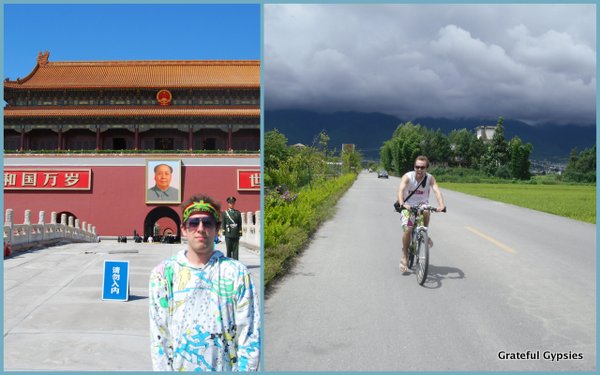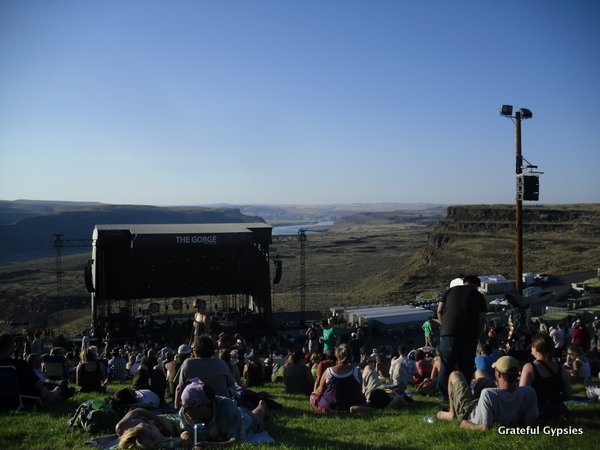What Happens When You Literally Translate Chinese Posted by sasha on Dec 2, 2014 in Uncategorized
For learners of Chinese, it’s always fun to literally translate new Chinese words. Often times, you’ll find that you recognize two characters on their own, but you haven’t yet learned the word that is formed when you put them together. In my experience, my Chinese students and friends can never understand why foreigners think it’s so funny to literally translate words from Chinese into English. That’s not the way they learn the language, so it just doesn’t add up for them. I thoroughly enjoy literal translations of Chinese words, and I hope you do too. See if you can figure out the actual English words in bold in my short story below, and then check for the Chinese vocabulary at the end:

From “Northern Capital” to “South of the Clouds.”
Hi everyone,
I’m Sasha. My Chinese name is Happy Field, but most Chinese people just call me Old Outside. I’m from the Beautiful Country, and I currently live in the Middle Country. I spent a few years living in the Northern Capital, and I recently moved South of the Clouds to find better air quality and weather. I’ve been working as an old expert here for the most part, and it’s been a great experience. I’m enjoying my new job so far – my old board is a nice guy from the Brave Country. I really like that there isn’t a dress code at work. I can wear my cowboy pants and I don’t need to wear a Western costume. I can even wear my cool shoes if it’s warm enough to do so. I also do some freelance work writing and editing photos/videos, so I need to have a good electric brain. I spent a lot of money on it, so I couldn’t afford a good hand machine. I don’t really need a good one for my work, anyways – everyone can get a hold of me by e-mail or social media.
My passion is travel – I just spent 14 months on the road backpacking and I hope to get back out there soon. If I can, I like to travel by fire vehicle and enjoy the scenery. Of course, if I want to go visit my family I need to take a flying machine. Sometimes traveling in this country can be tough, as it’s always people mountain people sea. I also love music, and my favorite music team is Phish. Believe it or not, I’ve been to over 50 of their music parties.

I’ll take a “flying machine” to see my favorite “music team” whenever possible.
I like cooking and trying new foods from different countries as well. Back at home, I usually eat something like a fire chicken sandwich and wash it down with a 100 Things cola. The food here is great, such as the three treasures of the earth. I just can’t get used to the white alcohol here, though – I’d rather have a glass of grape alcohol.
Alright, now let’s check out the vocabulary and learn a bit about these words:
- Happy Field (田乐 – tián lè): This is the Chinese name I was given by a teacher a while ago. 田 is a common Chinese surname, and it literally translates as “field.” 乐 means happy and it is also used in the word for music. Plus, it’s funny and easy to write. Together, I guess you could say my Chinese name is “Happy Field.” Works for this hippie.
- foreigner (老外 – lǎo wài): Get used to hearing this word if you’re not Chinese. It’s not quite as nice as another word that means foreigner (外国人 – wài guó rén), but most people don’t seem to mind yelling it out loud whenever they see you.
- USA (美国 – měi guó): The USA really is a beautiful country, so I think this one needs no explaining.
- China (中国 – zhōng guó): It’s sometimes referred to as the “Middle Kingdom” in English, which makes sense when you look at the Chinese name for China.
- Beijing (北京 – běi jīng): It hasn’t always been the capital of China, but the “northern capital” is these days.
- Yunnan province (云南 – yún nán): Come visit me in Yunnan and you’ll know immediately why this province is “south of the clouds.”
- teacher (老师 – lǎo shī): I should hope that I’m an “old expert” in English – I’ve been speaking it my whole life!
- boss (老板 – lǎo bǎn): A lot of us don’t like our bosses, but we still don’t call them an “old board.”
- UK (英国 – yīng guó): Let’s see those Brits play some American football, and then maybe I’ll call them the “brave country,” too.
- jeans (牛仔裤 – niú zǎi kù): We should totally call jeans “cowboy pants” in English!
- suit (西装 – xī zhuāng): I’m with Chinese on this one – suits are just a “Western costume” that are not meant to be worn in everyday life.
- sandals (凉鞋 – liáng xié): Sandals are without a doubt “cool shoes.”
- computer (电脑 – diàn nǎo): I use a Mac. What kind of “electric brain” do you use?
- cell phone (手机 – shǒu jī): I don’t mind using an old “hand machine” because I don’t need a nice, expensive one.
- train (火车 – huǒ chē): Riding the “fire vehicle” is a great way to travel across China.
- airplane (飞机 – fēi jī): Without a “flying machine,” it’d be hard for me to go back to the States to see my family and friends.
- “a sea of people” (人山人海 – rén shān rén hǎi): The Chinese way just sounds more fun – “people mountain people sea.”
- band/group (乐队 – yuè duì): I don’t care what the haters say – Phish is the best “music team” out there.
- concert (音乐会 – yīn yuè huì): I just love going to “music parties,” don’t you?
- turkey (火鸡 – huǒ jī): I can’t tell you how many times I’ve been asked if I’m going to eat “fire chicken” on Thanksgiving…
- Pepsi (百事可乐 – bǎi shì kě lè): Even if you prefer Coke, how can you argue with a name like “100 Things Cola”?
- “three treasures of the earth” (地三鮮 – dì sān xiān): The literal translation of this Chinese dish is easier than explaining it – stir-fried potatoes with eggplant and green pepper.
- Chinese liquor (白酒 – bái jiǔ): Don’t let Chinese people tell you this stuff is “white wine” – their translation is just off. This stuff is pure rocket fuel.
- wine (葡萄酒 – pú táo jiǔ): China calls it like it is – “grape alcohol” is an easy one to guess.
I also made a video a while back talking about how to form new Chinese words from ones you may already know:
Studying a language can be tough, frustrating, and nerve-wracking at times. Why not make it more fun and loosen up a bit? Do you know any other funny literal translations of Chinese words? Feel free to comment and share!

Build vocabulary, practice pronunciation, and more with Transparent Language Online. Available anytime, anywhere, on any device.
About the Author: sasha
Sasha is an English teacher, writer, photographer, and videographer from the great state of Michigan. Upon graduating from Michigan State University, he moved to China and spent 5+ years living, working, studying, and traveling there. He also studied Indonesian Language & Culture in Bali for a year. He and his wife run the travel blog Grateful Gypsies, and they're currently trying the digital nomad lifestyle across Latin America.




Comments:
Sian Bray:
My favourite literally translated Chinese word is currently ‘Owl’:猫头鹰, or cat-head eagle, a cat-headed eagle. Makes me laugh every time. I will never forget it though.
Tom Kirkham:
I love what you have done with the letter above, I totally agree with you – my Chinese friends don’t get it either! The great thing is, the characters like those above are really useful cause say you learn to write 火车, you get two bonus meanings, and if you already know 车 you only have one character to learn. By the way, your literal translations had me proper laughing out loud! It’s really nice how the Chinese seem to be so complimentary in their naming of countries, calling yours beautiful and mine brave, not sure about add country though thinking about it… I really wanna come and see Beijing soon, good luck with your teaching.
Tom
Jim Mahler:
Word-for-word translations give the English subtitles in low-budget Chinese movies much of their charm. Along the same lines, see https://www.chinese-stories-english.com/Contextual_Analysis__2_.html